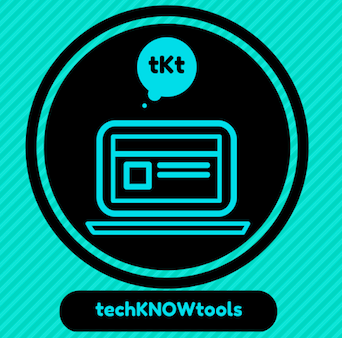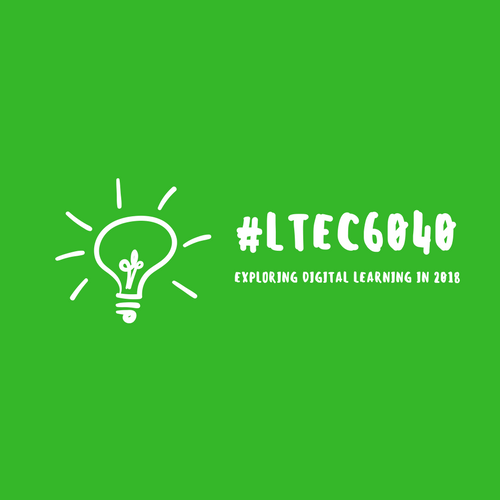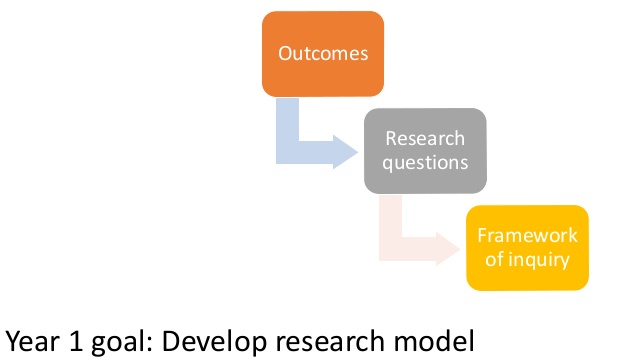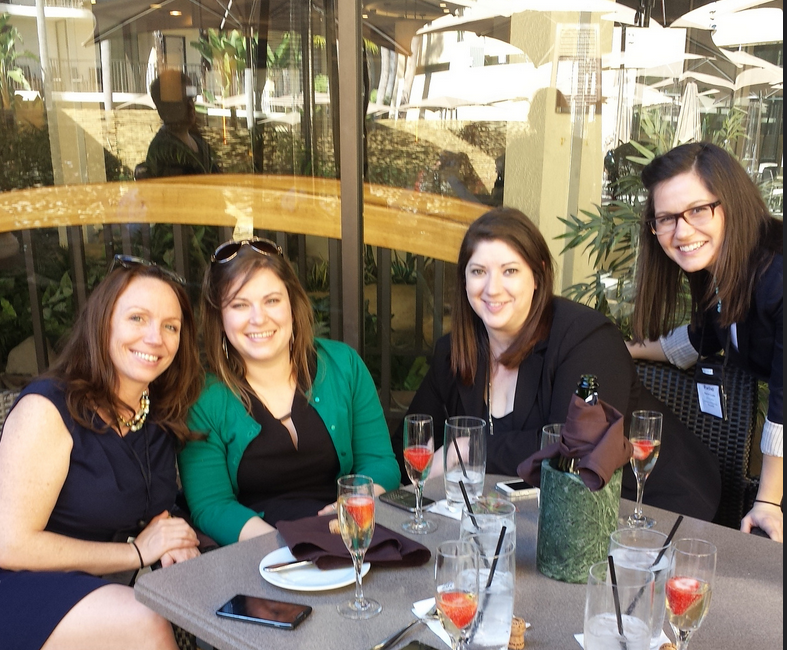This academic semester I am fully immersed in online/digital scholarship of teaching and learning. This should not be a surprise, as I teach online and I’m often trying to figure out how distance/technology impacts learning. This year I am exploring HOW TO research digital teaching/learning practices in the courses I instruct and for the scholarship I’m drafting. According to Storify (soon to R.I.P. in May 2018), we’ve been talking about how to best define/label distributed learning for a while => here’s a Twitter thread captured from 3 years ago: “State of ______ [insert: digital, online, etc.] Learning.” Under the umbrella term, distance education, comes a variety of ways to teach and learn. Additionally, the technological landscape in education has offered a number of ways to discuss, research, and design distributed learning. It’s complicated and challenging as the titles/labels for this type of teaching/learning hold many monikers in the empirical research: educational/learning technologies, networked learning, online education, blended learning environments, hybrid models, flipped learning, e-Learning, virtual environments, and more! Some technologies have the ability to design a flow of distributed learning that is seamless; whereas other digital facets create barriers and challenges.
Our learning spaces have a number of ways to infuse technology into distance education. With this comes even more ways to research and study these pedagogical practices for digital learning. Regardless of the app, platform, or tool, we seem to have some aspect of “digital” infused into how we both teach and learn. As the options and variety of this online teaching/learning scholarship is broad, I am looking forward to supporting doctoral researchers who will identify one aspect of digital learning in our LTEC 6040: Theory and Practice of Distributed Learning (#LTEC6040 ) course. If you read this blog or connect with me on Twitter, you might see a few posts/shares using this hashtag to signal ideas and offer resources for these early career scholars as they work on investigating one piece of this distance/distributed learning pie.
The central focus of the #LTEC6040 course is to encourage doctoral researchers to define their own theory of online learning/teaching in context to:
- Outlining empirical literature that supports (or refutes) their personal online learning/teaching theory
- Identifying appropriate research methods to collect and analyze data connected to this personal online learning/teaching theory (small scale study)
- Describing the ethical considerations and practices for this research study (e.g. IRB, recruitment, sample population, etc.)
- Drafting an academic article manuscript for an appropriate publication outlet related to their field of inquiry in online teaching/learning
If you are so inclined, I would encourage you to join in the conversation and offer advice, resources,ideas, and readings for these scholars — as a number of you hold some invaluable expertise in a variety of areas we’ll be exploring for distributed learning this term [To see potential topics, see page 6 of the LTEC 6040 Course Syllabus]:
We are just beginning to define what it means to examine online instruction/learning and unpacking distributed educational environments. In the initial conversations and class blog posts, most are still working on how they DEFINE and OUTLINE what it means to learn/teach online from their own experiences and expectations from the theories they are learning about in our program. Distance education research in higher education is fairly “young” (in comparison to other disciplines) and I am grateful I am surrounded by some fantastic colleagues and their respective departments/units/centers/teams who continue to find value in sharing digital teaching/learning scholarship resources. Here are a just a few (of many) examples:
- Russ Poulin for threads together various definitions of “Distance Education” in his WCET blog post: What is Distance Education? – Definitions and Delineations
- National Research Center for Distance Education and Technological Advancements (DETA) at the University of Wisconsin – Milwaukee has supported research with their development of a Framework for Inquiry, Research Toolkit, Research Model, and Research Questions
- Dr. Ross Perkins and Dr. Patrick Lowenthal (both of Boise State University‘s Department of Educational Technology) created/shared an EdTech Journal List from their research study
- Innovative Pedagogy 2017 report from the Open University in collaboration with the Learning In a Networked Society (LINKS) Israeli Center of Research Excellence (I-CORE).
- The University of Central Florida’s (UCF) Center for Distributed Learning (CDL) offers the Teaching Online Pedagogical Repository (TOPR) as a public resource for faculty and instructional designers interested in online and blended teaching strategies.
- Openness & Education – A Beginners Guide via Martin Weller
- Oregon State University eCampus Research Unit has created the Online Learning Efficacy Research Database
- The State of Higher Ed LMS Market for US and Canada: Fall 2017 Edition from e-Literate Michael Feldstein & Phil Hill
- The Changing Landscape of Online Education (CHLOE) 2017 Report via Quality Matters
- Grade Increase: Tracking Distance Education in the United States 2018 report of the state of online learning in U.S. Higher education via Babson Survey Research Group and co-sponsored by the Online Learning Consortium (OLC), Pearson, and Tyton Partners.
Beyond these databases, reports, and resources, I am curating other digital learning materials and discourse to prompt discussion, debate and inquiry. Please feel free to share articles, blog posts, media, and more that might be suitable for diving into online teaching/learning research. Please feel free to leave suggestions in the comments below, if you have any. If you tweet, share what you think is critical for investigations in the digital age of learning using the course hashtag: #LTEC6040







You must be logged in to post a comment.